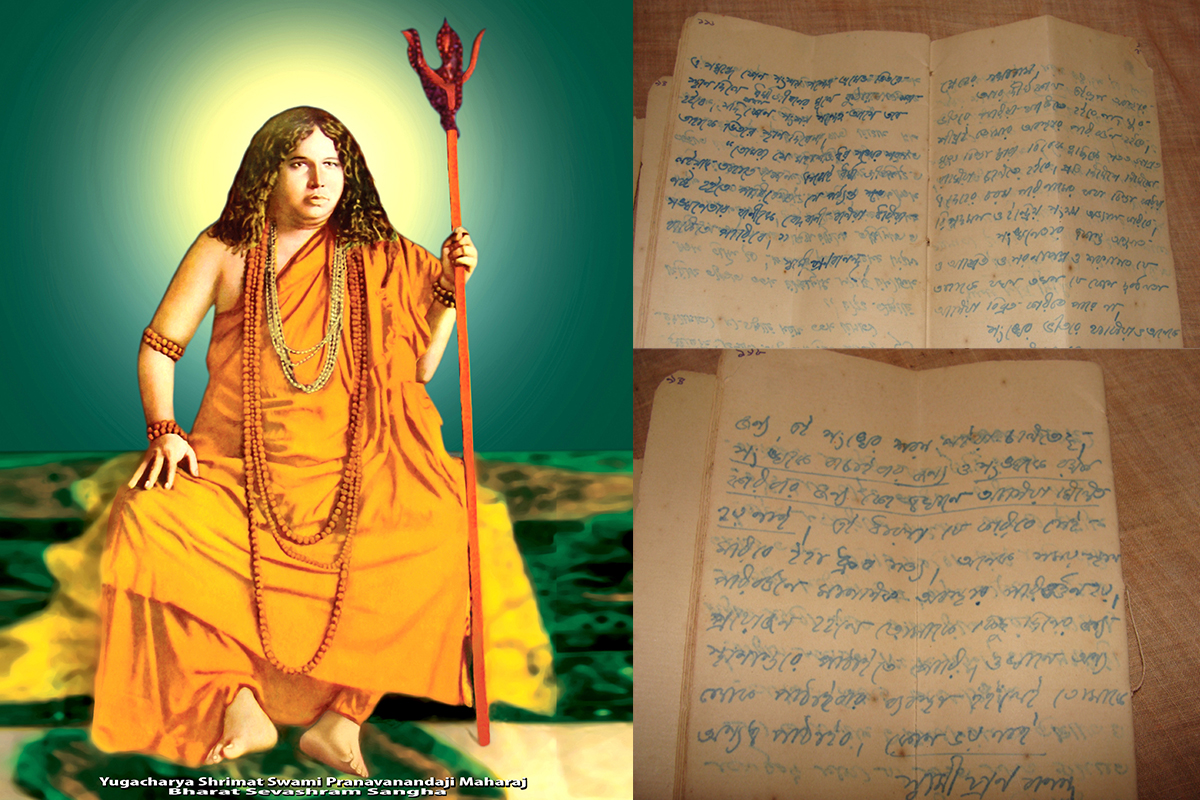Swami Pranavananda – founder of Bharat Sevashram Sangha (BSS). His life was short, but an intense period of 45 years.
Swami Pranavananda’s dynamism has helped to create a new consciousness within Hinduism which can lead to a restoration of Hindu values and a flourishing of genuine religion in the sub-continent” which according to Smart “is something of vital moment to global civilisation, in which Hindu values must surely play a major role.
Born as in 1896, and known as Binod in his childhood Swami Pranavananda was given a special initiation by Baba Gambhirananda Maharaj of Gorakhpur on the new moon day of October 1913. In 1924, he was given complete monk-hood by Swami Govindananda Giri. In terms of spirituality, “he was a master of nirvikalpa samadhi – the deepest image-less trance in which the mystic attains unity with the formless Brahman”. He was equally aware of the need for Hindu unity and passionately worked towards achieving it.
Between 1919 and 1921, as epidemics, famine and cyclone ravaged Bengal Swami Pranavananda and his disciples carried out selfless humanitarian work.
In his relief work, not only was there no communal discrimination, he even convinced the rich Hindus to provide shelter to the Muslims affected by the disaster. He converted his own home as a refugee centre.
He went to the village of the untouchables, poor cobblers and leather-workers, and escorted them too to relative safety. Everyone is equal: there is no untouchability – such was his conviction.
Bharat Sevashram Sangha (BSS), which he created, combined inner sadhana seamlessly with national resurgence and social emancipation. Already the great scientist Acharya P C Roy had seen and appreciated the organising abilities of Pranavananda during the cyclone and famine relief. As chairman of the Famine Relief Committee, P C Roy marvelled that “hundreds of workers he recruited in no time” and “the management of a competent leader that made the famine relief successful”.
Acharya Dev never compromised on equality. To him “the problem of Hindu independence was brought about by the social divisions within the people” and “greater equality was a precondition of national liberation”. He opposed untouchability and caste divisions both in principle and practice. His Hindu Milan or Unity Centers aimed to annihilate these concepts.
Despite his failing health due to diabetes, he was travelling, Swamiji sleeping in the railway station so that he would not waste time travelling and attend the rally the very next day morning. In his speeches, he emphasised his vision of future independent India as dharma rashtra.
(Reference : Prophet of a New Hindu Age: The Life and Times of Acharya Pranavananda: Volume 19 By Ninian Smart and Swami Purnananda)

